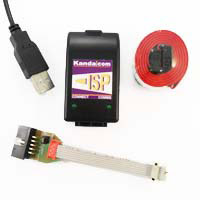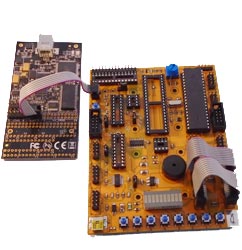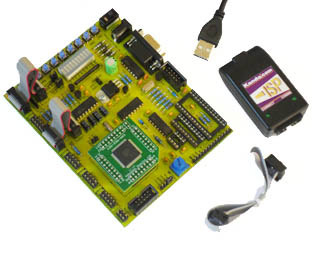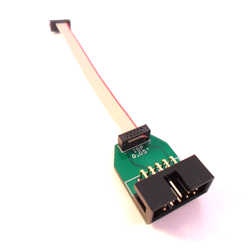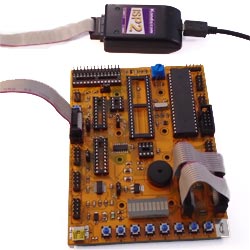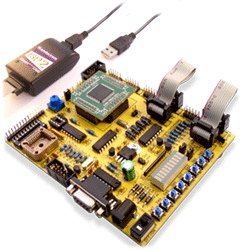AVR Studio
Create a C project in AVRStudio and make sure the AVR microcontroller is the one you want to use. WinAVR C is very fussy about the correct device and although the code will compile, it will not run properly unless the AVR microcontroller type is correct
To change AVR microcontroller, go to Project > Configuration Options and select correct AVR.
Note that only the C Compiler project changes, not main project device type. Also change
Optimization to -0s otherwise compiler has problems with delay routines.
Connect to PC via standard serial cable, not Nul-modem cable. Run Hyper Teminal (Programs > Accessories > Communications) and create New connection, with Connect Using set to COM1 (or other COM Port). In COM1 Properties set Baud Rate to 38400, Data bits to 8, no Parity, 1 stop bit
and no flow control.
#define F_CPU 8000000UL // 8 MHz /*Very Important - change F_CPU to match target clock Note: default AVR CLKSEL is 1MHz internal RC This program transmits continously on USART. Interrupt is used for Receive charactor, which is then transmitted instead. LEDs are used as a test. Normal RX routine is included but not used. Change USART_BAUDRATE constant to change Baud Rate */ #include <avr/io.h> #include <util/delay.h> #include <avr/interrupt.h> // Define baud rate #define USART_BAUDRATE 38400 #define BAUD_PRESCALE (((F_CPU / (USART_BAUDRATE * 16UL))) - 1) volatile unsigned char value; /* This variable is volatile so both main and RX interrupt can use it. It could also be a uint8_t type */ /* Interrupt Service Routine for Receive Complete NOTE: vector name changes with different AVRs see AVRStudio - Help - AVR-Libc reference - Library Reference - <avr/interrupt.h>: Interrupts for vector names other than USART_RXC_vect for ATmega32 */ ISR(USART_RXC_vect){ value = UDR; //read UART register into value PORTB = ~value; // output inverted value on LEDs (0=on) } void USART_Init(void){ // Set baud rate UBRRL = BAUD_PRESCALE;// Load lower 8-bits into the low byte of the UBRR register UBRRH = (BAUD_PRESCALE >> 8); /* Load upper 8-bits into the high byte of the UBRR register Default frame format is 8 data bits, no parity, 1 stop bit to change use UCSRC, see AVR datasheet*/ // Enable receiver and transmitter and receive complete interrupt UCSRB = ((1<<TXEN)|(1<<RXEN) | (1<<RXCIE)); } void USART_SendByte(uint8_t u8Data){ // Wait until last byte has been transmitted while((UCSRA &(1<<UDRE)) == 0); // Transmit data UDR = u8Data; } // not being used but here for completeness // Wait until a byte has been received and return received data uint8_t USART_ReceiveByte(){ while((UCSRA &(1<<RXC)) == 0); return UDR; } void Led_init(void){ //outputs, all off DDRB =0xFF; PORTB = 0xFF; } int main(void){ USART_Init(); // Initialise USART sei(); // enable all interrupts Led_init(); // init LEDs for testing value = 'A'; //0x41; PORTB = ~value; // 0 = LED on for(;;){ // Repeat indefinitely USART_SendByte(value); // send value _delay_ms(250); // delay just to stop Hyperterminal screen cluttering up } }
If you found this information useful, please give us a mention or share it on Social media.




